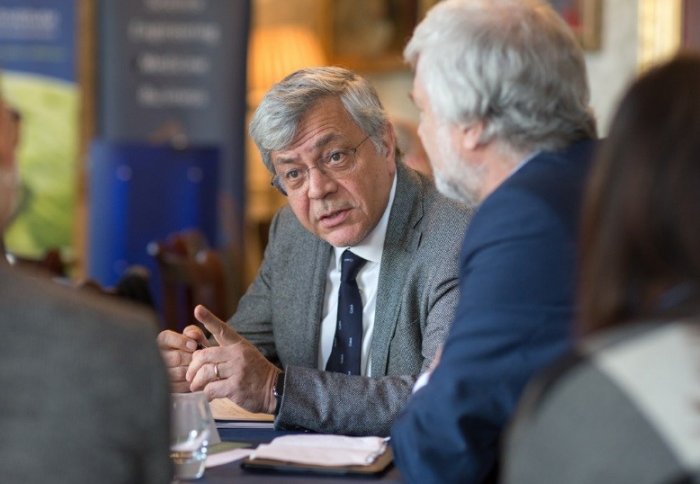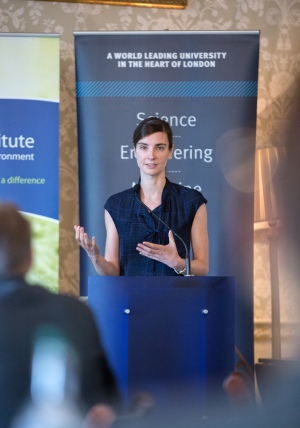International diplomats confer with Imperial experts ahead of UN climate summit

Diplomats discussed their priorities for addressing climate change
Diplomats from over 14 nations gathered at Imperial College London last week to discuss priorities for the UN climate conference in Marrakech.
International diplomats and science representatives met climate and policy experts from across Imperial to discuss some of the headline issues up for debate at next week’s UN climate conference (COP22). The conference will pave the way for the implementation of the global climate deal signed last year in Paris, which comes into force today.
Sir David King, the UK’s Special Representative for Climate Change, urged participants to take strong action to reduce their countries’ greenhouse gas emissions beyond what they have already committed to under the Paris Agreement. “One point five degrees has to be our objective,” he said, referring to the target for limiting global temperature rise set in Paris.
The briefing was organised by Imperial’s International Relations Office and the Grantham Institute, in partnership with the London Diplomatic Science Club, which brings together science attachés from London’s embassies and high commissions.
Introducing the event, Imperial’s Associate Provost Maggie Dallman emphasised Imperial’s global outlook and its strengths in producing the interdisciplinary research needed to address issues such as climate change. “Through events such as these we seek to become a trusted interface for academia, government and industry; playing a role in informing policy-makers, as well as translating our research into viable solutions for societal benefit,” she said.
Aiming low
The Intergovernmental Panel on Climate Change (IPCC) will release a special report in 2018 analysing the latest science on the impacts of 1.5°C of global warming, and the emissions cuts needed to achieve this ambitious target. Professor Jim Skea, co-chair of the IPCC’s Working Group III, which focuses on mitigating climate change, reviewed recent progress on its upcoming reports and stressed the need for the IPCC to communicate more accessibly. “The IPCC’s reports are relied upon by decision makers worldwide, it has a duty to assess the available science clearly and succinctly,” he said.
With a global deal now in force, COP22 will focus on the finer details of the Paris Agreement, including monitoring and reporting on progress towards a range of mitigation, finance and adaptation commitments.

Dr Heather Graven explains her research on measuring carbon emissions
Scientists predict that a warming planet will increase the frequency of extreme weather events, promote the spread of infectious diseases, such as malaria, and affect food production. Grantham Lecturer Dr Kris Murray reported on other health benefits of limiting climate change, such as reducing harmful air pollution, encouraging active forms of transport or reducing red meat consumption.
As well as listening to some expert voices, diplomats had the opportunity to learn more about other countries’ priorities for climate action and to engage with Imperial academics during lively group discussions. These conversations covered a broad range of topics, from promoting sustainable agriculture to the importance of securing financing for low carbon technologies.
“The message from Paris is that extraordinary advances can be made if there is international will to achieve them,” said Professor Joanna Haigh, Co-Director of the Grantham Institute.
Imperial staff and students will be attending the conference in Marrakech, which runs from 7 to 18 November. Read more about Imperial activities at COP 22
Article text (excluding photos or graphics) © Imperial College London.
Photos and graphics subject to third party copyright used with permission or © Imperial College London.
Reporter
Ms Alexandra Franklin-Cheung
Centre for Environmental Policy